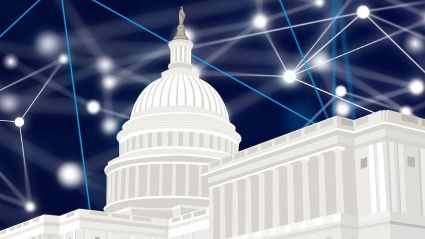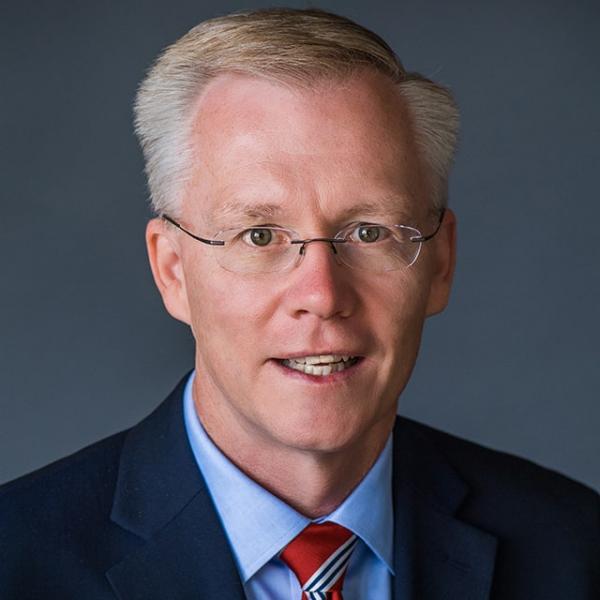
In This Newsletter
FinTech in Argentina
SEC Leadership Scenarios under the Next Administration
DeFi Policy
FinTech in Argentina
This October, the Milken Institute will co-host a roundtable in Buenos Aires on “FinTech in Latin America” as part of the Inter-American Development Bank Lab Forum. The roundtable follows a series of high-level engagements with the LatAm region. Earlier this year, Argentine President Javier Milei spoke at the 2024 Global Conference, and Milken Institute CEO Rich Ditizio hosted a series of roundtables in São Paulo, Brazil.
FinTech has driven economic transformation in Argentina and across the broader LatAm region, enhancing financial inclusion and closing gender gaps. This explosion in financial inclusion comes after a decade of widespread FinTech adoption in Argentina. FinTech Nexus reports that the adoption of mobile banking services in the Argentine financial system is on the verge of achieving full coverage for the adult population. According to the Central Bank of Argentina, the number of Argentinians with bank accounts reached 35.7 million by the first half of 2023, representing more than 99 percent of the adult population.
According to the World Bank, between 2011 and 2021, account ownership in Argentina more than doubled, with women now surpassing men in bank account ownership by four percentage points. This milestone reflects FinTech’s role as a catalyst for inclusive growth, providing new opportunities for women and marginalized communities. With Argentina having achieved near-universal mobile banking coverage, the FinTech landscape is ripe for innovation and further expansion, despite challenges such as the rising cost of cellular data and stubbornly high inflation.
In Chambers and Partners’ FinTech 2024 report in Argentina, the authors attribute the recent surge in FinTech growth and adoption to the Milei administration’s focus on deregulation of the financial sector, modernization of digital payments, and development of mobile infrastructure. Milei’s team is working to make cashless payments easier and to standardize QR codes for payments. Innovation is also happening at the local level. The city of Buenos Aires launched QuarkID this year, which provides digital identity solutions for official documents in the city.
SEC Leadership Scenarios under the Next Administration
We have been tracking bipartisan efforts in the US to regulate the financial industry responsibly. No matter the outcome, November’s election will result in a new US administration that may change how federal regulators approach the digital asset industry.
Michael Piwowar, PhD, EVP of Milken Institute Finance, spoke with The Block, the independent media outlet covering the crypto industry, for an article focused on the election’s potential impact on crypto regulation and enforcement. Piwowar speculated on the role of Securities and Exchange Commission (SEC) Chair Gary Gensler in a potential Trump administration, noting that while the usual mode is to step down, Gensler could choose to remain as a commissioner. Piwowar drew parallels with his own experience, recalling how former SEC Chair Mary Jo White stepped down on the day of Trump's inauguration, which led to Piwowar’s brief tenure as acting chair. Piwowar also emphasized the importance of Democratic Commissioner Caroline Crenshaw’s reconfirmation, which could shape the SEC's future leadership dynamics.
Piwowar explained that if Crenshaw is not reconfirmed and Trump becomes president, Gensler could remain at the SEC as a commissioner, with one of the current Republican commissioners, such as Hester Peirce or Mark Uyeda, designated as acting chair. Piwowar also discussed the power of the SEC chair in appointing key personnel and directing enforcement actions, particularly in areas such as crypto regulation. He suggested that although most enforcement actions are likely to proceed, a new chair might reconsider ongoing investigations or litigation related to cryptocurrencies.
Despite the potential shift in leadership, Piwowar cautioned that it is not guaranteed that a new SEC chair under a Trump administration would bring fewer enforcement actions, especially in the crypto space. He noted that some recent cases, such as the one involving Ripple, were inherited from former SEC Chair Jay Clayton rather than initiated by Gensler. A new chair could reassess regulatory priorities, including proposed rules affecting the crypto industry, but would still need to secure votes from other commissioners to advance any significant changes.
DeFi Policy
Decentralized Finance (DeFi) is back in the spotlight after recent enforcement actions by the Commodity Futures Trading Commission (CFTC) against Uniswap Labs, developer of the Uniswap decentralized exchange. The CFTC has recently brought similar cases against other DeFi protocols such as Opyn, Deridex, and ZeroEx, JD Supra reports. The CFTC fined Uniswap $175,000, alleging violations of the Commodity Exchange Act for offering off-exchange leveraged retail crypto commodity products on its platform, which, in their view, constitutes illegal derivatives trading.
CFTC Commissioners Caroline Pham and Summer Mersinger both issued dissenting statements, raising concerns about the legal basis and potential implications of the enforcement action.
This September, the US House Financial Services Committee held its first-ever Congressional hearing on DeFi, “Decoding DeFi: Breaking Down the Future of Decentralized Finance.” The hearing explored the potential and challenges of emerging financial technologies—such as tokenization and blockchain—in reshaping traditional finance.
Republican lawmakers focused on DeFi’s potential to democratize finance, while Democrats, including Ranking Member Maxine Waters and Stephen Lynch, remained focused on its risks, particularly regarding consumer protection and the possibility of DeFi projects not being as decentralized as claimed. Several witnesses, including Peter Van Valkenburgh, director of research at Coin Center, addressed these concerns, noting that regulatory guidance has been inadequate in assisting DeFi companies to comply with the law. The hearing underscored a broad congressional interest in DeFi, with lawmakers engaging in a nuanced discussion that covered topics ranging from decentralized autonomous organization governance to the impact of quantum computing on blockchain security.











